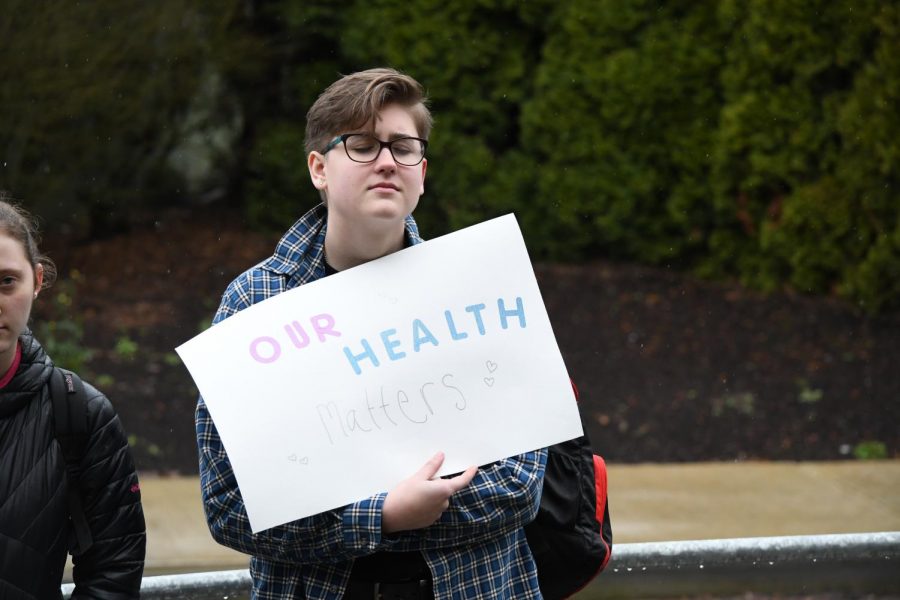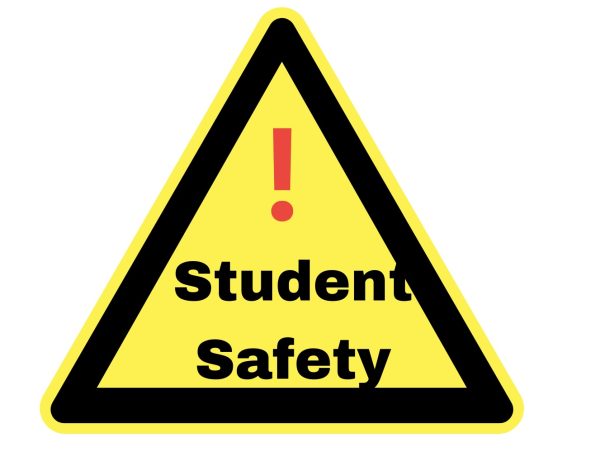Why teaching only abstinence is counterproductive
Sex education has always been a controversial topic, often criticized for exposing our precious children to the vulgarities of the body or promoting sex. Most sex-education talks about the actual act of sex (almost always heteronormative) and the physical components around it. We understand the anatomy and physicality of the act. But are often left in the dark, when it comes to the other many layered nuances surrounding it. Things like protection, consent, and similar subjects are disclosed from the conversation. Instead of going that far into it, educators refer to promoting abstinence-dominant protection.
Abstinence is the choice to refrain from sex. It is often taught to teens, since it has 100% success rate of preventing pregnancy and STDs. However it ignores the blatant fact, that not everyone is going to follow it. No matter how much adults try to prevent it, some teens are going to engage in sexual activity, and it’s our job to teach them how to be safe. Abstinence should ultimately be the choice of a person, and it’s not fair to punish those who don’t refrain from sex with ignorance.
Education is to prepare the youth for adult life, and sex is a lot of times a big part of adult life. To completely ignore it, is a disservice to everyone. We need to have positive conversations about sex, and not put such a negative connotation around it. Teaching abstinence over other methods often does this, making sex seem like a dirty thing, that takes away one’s purity, or “virginity,” which is a total myth. It also puts bad ideas and narratives in our children’s heads, adding guilt and shame around an already extremely complicated subject.
There is also the facts and statistics to be reviewed when it comes to abstinence focused education. The U.S. ranks first in teen pregnancy rates and sexually transmitted diseases. Educators try to reduce this rate, by investing in abstinence-only or abstinence-focused education, however it seems this is not a great solution. In fact it might be increasing rates. According to the National Center of Biotechnology, a study found that teen pregnancies and births, are positively correlated with the degree of abstinence in the curriculum. So basically the more abstinence is stressed in a curriculum, the more at risk students are to pregnancy.
Also according to several other studies, including one by U.S. Centers for Disease Control and Prevention, found that comprehensive sexual education (which includes both abstinence and contraception) is effective in reducing STI and pregnancy. These facts are stark and concerning, and need to be addressed. Not just on a health level, but moral one too. It was also found that communities with higher levels of hispanic and black teens, are even more at risk, for both STDs and teen pregnancy. This is obviously a even bigger problem, especially with America’s minorities at risk.
Such programs also put sexual minority youth at risk as well, by reinforcing narratives around gender stereotypes, and heteronormativity. Often excluded from the conversations are gay, queer, and non-binary youth. Not only this does this put these teens more at risk, but also gives them a sense of isolation in the curriculum, which can lead to more negative thoughts, substance abuse, and other problems associated with mental health.
Lately, as students here have acknowledged this, and helped promote a more inclusive sex education program, including more nuanced and comprehensive curriculum.
“In Oregon, by law, the sexual health program needs to be abstinence based,” Michelle Dahl, wellness teacher, said, “Meaning that we teach abstinence is the best choice for all teens, but we also teach protective factors around contraception as well.”
In terms of an inclusive learning on, non-cisgender and heterosexual couples.
“The new curriculum brings in the aspect of determining what sexuality is, as well as sexual attraction. We do activities with the kids, so they know different terminologies, like binary, cisgender, bisexual, homosexual, transgender, and such. I would say the textbook does go over it. However, it’s definitely not fully adequate and we could use more education,” Dahl said.
Overall, abstinence-only and abstinence-stressed education has been proven not only to be a health risk to teens, but also affects them negatively in emotional and attitude areas as well. Fueling false narratives about purity, worth, and morals. As a country and community of Americans, we have to consider these factors as high priority. We need to protect our youth with education and knowledge. We have to get rid of the stigma, and start healthy conversations around our bodies and sexualities. Providing proper education surrounding protection and safety is incredibly important for our future and our youths dispositions.
Your donation will support the student journalists of West Linn High School. Your contribution will allow us to continue to produce quality content by purchasing equipment, software, and continuing to host our website on School Newspapers Online (SNO).

Iris Brucker, sophomore, had always been an answer seeker at heart. Since a young age she was constantly asking questions about anything and everything,...
Andrea Secchi is an award-winning portrait, fashion and lifestyle photographer from Portland, Oregon. Her love of sharing people's stories lead her...

























![Game, set, and match. Corbin Atchley, sophomore, high fives Sanam Sidhu, freshman, after a rally with other club members. “I just joined [the club],” Sidhu said. “[I heard about it] on Instagram, they always post about it, I’ve been wanting to come. My parents used to play [net sports] too and they taught us, and then I learned from my brother.”](https://wlhsnow.com/wp-content/uploads/2024/03/MG_7715-2-1200x800.jpg)
![At the bottom of the third inning, the Lions are still scoreless. Rowe stands at home plate, preparing to bat, while Vandenbrink stands off to the side as the next batter up. Despite having the bases loaded, the team was unable to score any runs. “It’s just the beginning of the season. We’re just going to be playing out best by June, [and] that’s where champions are,” Rowe said.](https://wlhsnow.com/wp-content/uploads/2024/03/IMG_3077-1200x900.jpg)





![The teams prepare to start another play with just a few minutes left in the first half. The Lions were in the lead at halftime with a score of 27-0. At half time, the team went back to the locker rooms. “[We ate] orange slices,” Malos said. “[Then] our team came out and got the win.”](https://wlhsnow.com/wp-content/uploads/2023/10/IMG_2385-1200x800.jpg)


















































































